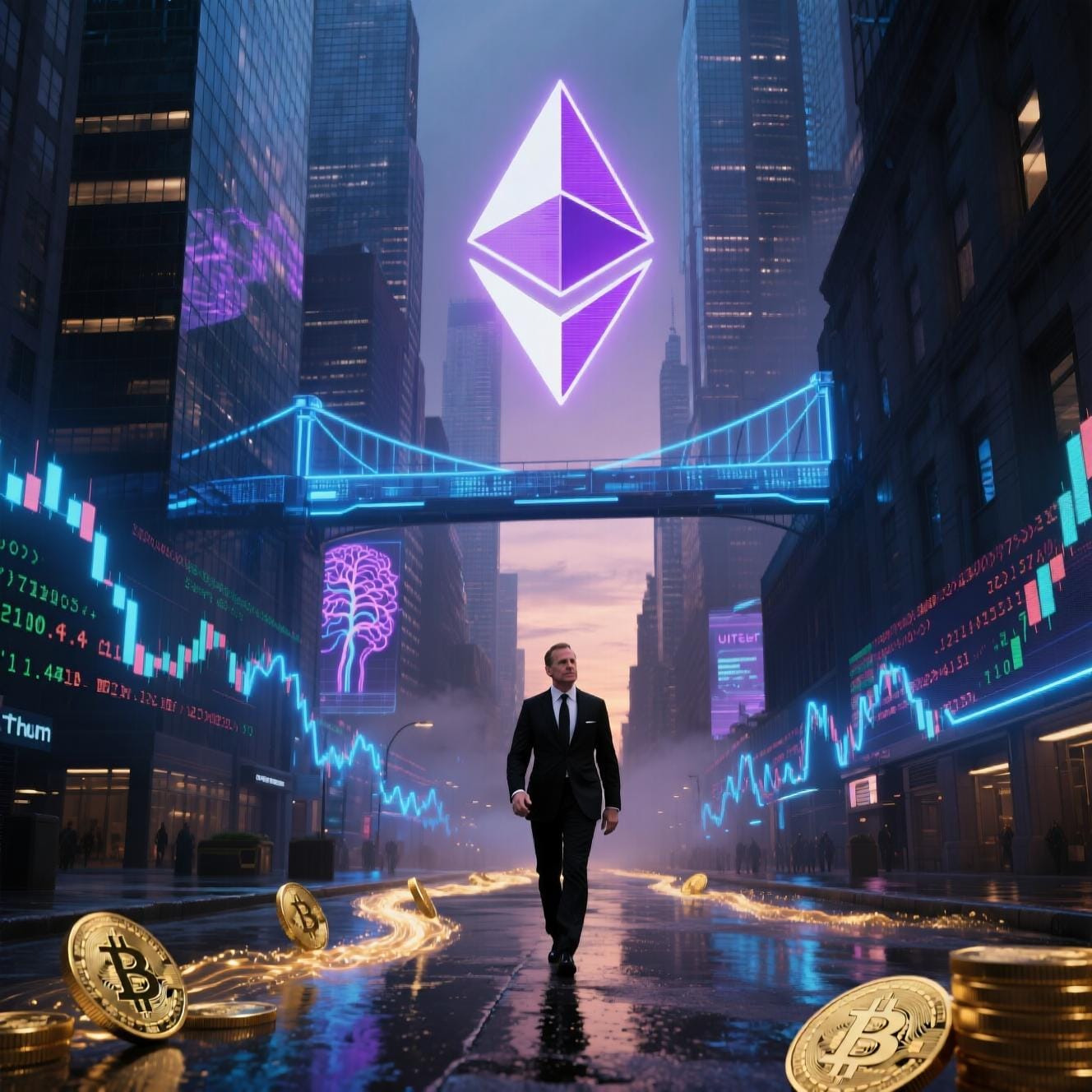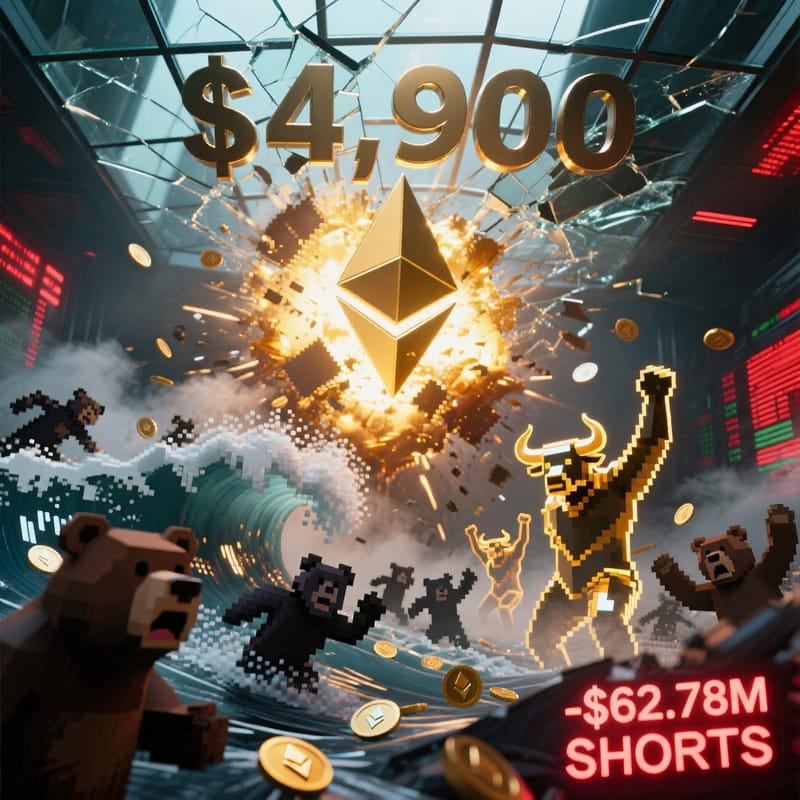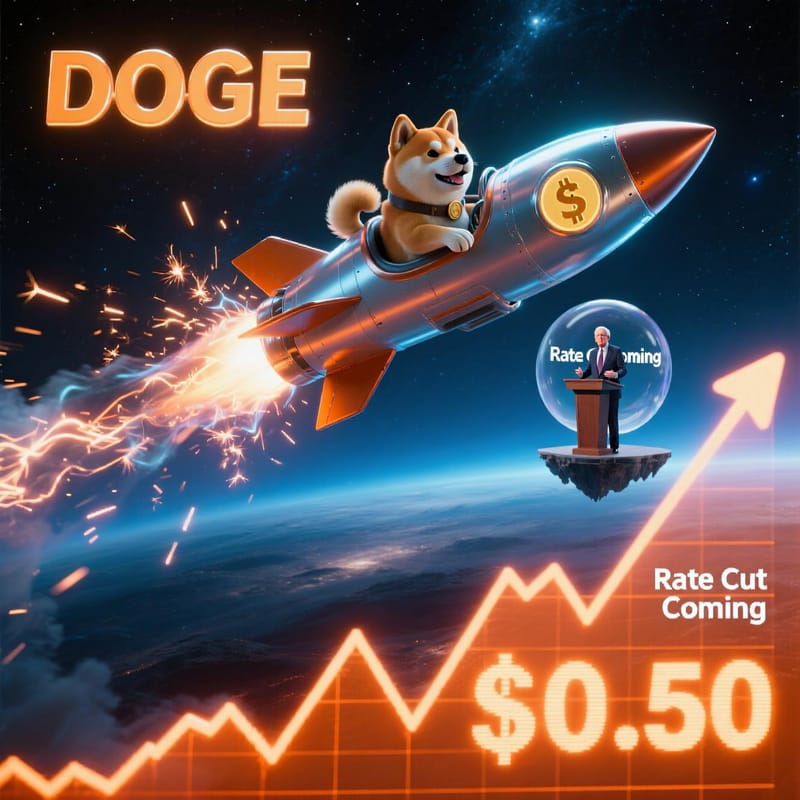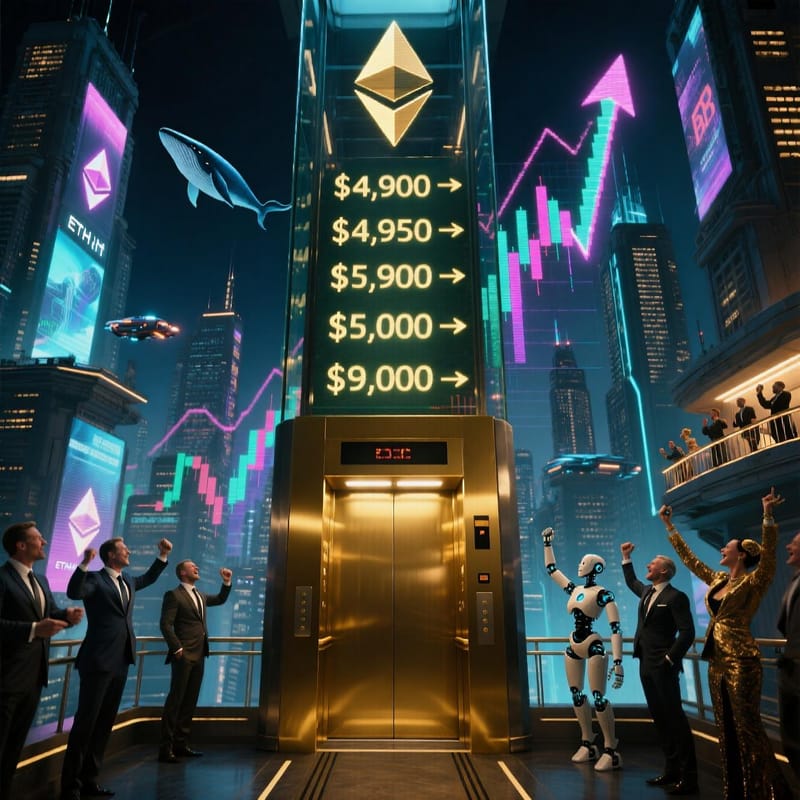"Peter Thiel Bets Big on Ethereum: The Quiet Revolution Turning Wall Street Into a Blockchain"
Peter Thiel isn’t just investing in Ethereum. He’s betting it will become Wall Street’s invisible rail—the decentralized settlement layer for stocks, bonds, and dollars. With BlackRock and Franklin Templeton already moving, this isn’t speculation. It’s the blueprint for finance in 2030.

The Thiel Thesis: Why Ethereum Is the Future of Wall Street’s Back Office
When Peter Thiel speaks, smart money listens.
Now, through his legendary venture firm Founders Fund, the PayPal co-founder and early Facebook investor is placing a quiet but profound bet: Ethereum will become the default infrastructure for institutional finance—not as a speculative asset, but as a settlement network for real-world value.
This isn’t about ETFs or price pumps. It’s about rewiring the financial system from the inside out.
From PayPal to Protocol: Thiel’s Long Game
Thiel has always been a contrarian builder. At PayPal, he helped digitize money. Now, through Founders Fund, he’s backing startups like ETHZilla and other Ethereum-native firms that treat ETH not just as a treasury reserve, but as the operating system for next-gen finance.
The goal? To enable seamless, 24/7 clearing of tokenized stocks, bonds, real estate, and even USD settlements—all on Ethereum’s secure, transparent, and programmable blockchain.
As Thiel put it:
“If Ethereum can become an alternative channel for settling USD, stocks, and other assets outside of the traditional financial system, its native token will benefit greatly from increased network activity.”
In other words: the more Wall Street uses Ethereum, the more valuable ETH becomes—not just as a currency, but as the settlement layer.
Why Ethereum? The Institutional Choice
While Bitcoin dominates headlines, institutions aren’t building on BTC. They’re building on ETH—and for good reason:
- Smart contracts automate compliance, payouts, and ownership transfers
- Tokenization standards (ERC-3643, ERC-4906) enable regulated asset issuance
- L2s and rollups offer scalability without sacrificing security
- Staking provides yield—unlike non-productive assets
Ethereum isn’t just open. It’s enterprise-ready.
And Thiel isn’t alone.
Wall Street Joins the Stack
Major financial players are already live on Ethereum:
- BlackRock has launched BUIDL, its tokenized U.S. Treasury fund, on Ethereum
- Franklin Templeton runs its tokenized money market fund (FUSION) on the network
- JPMorgan’s Onyx and Goldman Sachs are piloting RWA settlements using ETH-compatible chains
These aren’t experiments. They’re production-grade deployments—and they’re driving real demand for ETH as both collateral and gas.
The Ripple Effect: Network Activity Soars
The impact is already visible:
- Ethereum’s year-to-date price up 27%, outpacing Bitcoin
- Gas fees on L1 and L2s rising due to institutional traffic
- TVL in DeFi back above $90B, with RWA protocols like Ondo, Maple, and Centrifuge leading growth
But the real story isn’t price. It’s utility. For the first time, trillions in traditional assets are being tested on a decentralized network.
Treasury Allocations: The New Normal?
Companies like ETHZilla—backed by Founders Fund—are pioneering a new model: holding Ethereum as treasury reserves, not just for speculation, but as working capital for on-chain operations.
This mirrors the early days of corporate Bitcoin adoption—but with a twist. ETH isn’t just held. It’s used:
- Paying for smart contract execution
- Staking to earn yield
- Serving as collateral for tokenized asset issuance
It’s a self-reinforcing loop: more usage → more demand → more value → more adoption.
Challenges Ahead: Regulation and Interoperability
Of course, hurdles remain:
- Regulatory clarity on tokenized securities is still evolving
- Cross-chain settlement between legacy systems and Ethereum needs refinement
- Scalability under heavy institutional load must be proven long-term
But Thiel has never backed easy wins. He backs paradigm shifts—and this is one.
The Bigger Picture: A Decentralized Financial Rail
Imagine a world where:
- A stock trade settles in seconds, not T+2
- Bond coupons pay out automatically via smart contracts
- Real estate titles are fraud-proof and instantly transferable
That world runs on Ethereum.
And if Thiel’s vision holds, ETH won’t just be a crypto asset—it’ll be financial plumbing. Invisible, essential, and extremely valuable.





